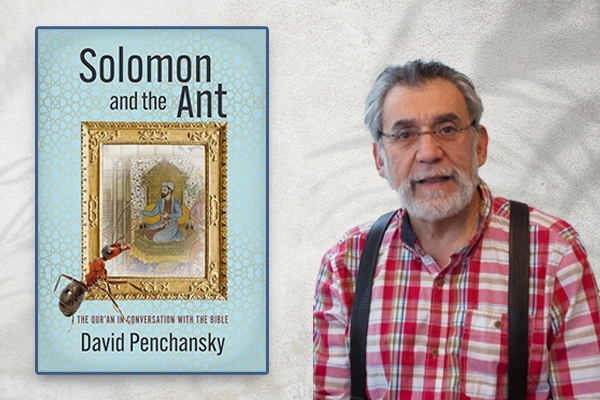‘Nuanced’ Details of Quran Cannot Be Easily Translated: American Professor

This is according to professor David Penchansky of University of St. Thomas in Minnesota. He made the statements in an online lecture hosted by the Inekas Institute on September 5, 2024.
In the lecture, he talked about his recent book Solomon and the Ant: Qur'an and Bible in Dialogue and explored the Quran's rich narrative tradition and its intersection with Biblical texts.
Despite being a self-proclaimed biblical scholar rather than a Quranic one, Penchansky dove into Quranic studies over 15 years ago, driven by a passion for narrative analysis and a growing familiarity with the Arabic language.
"Let me tell you, it changed my life," Penchansky said while speaking about his decision to engage with the Holy Quran.
He noted that the book, published in 2021, represents over a decade of study, translation, and reflection.
Read More:
Explaining the methodology used in the study, the scholar said he focused on narratives that are intriguing and do not overlap with biblical accounts.
He noted that other than looking at the translation of the verses in English, he also opted for engaging with the original Arabic text.
"I began to memorize the passage in Arabic... I started to learn how to chant the passage in the traditional way, Tajweed... I wanted to experience the Quran as close as I could to the way a Muslim would experience it," he said.
He noted that through memorization, chanting, and consultation of classical and modern scholarship, he uncovered layers of meaning often missed in translation.
He deliberately avoided Quranic stories with direct Biblical parallels, focusing instead on lesser-explored narratives. "I was attracted to kind of the odd, the fringy stuff that I didn't expect to be there."
"Reading the Quran in Arabic was not sufficient. I had to somehow approach the experience of the Quran like a Muslim. I experienced these sacred words flowing freely out of my mouth in the ancient rhythm and cantillation," the scholar noted.
Read More:
In one of the book's chapters, Penchansky tries to analyze Surah al-Jinn, focusing on what he describes as the “liminal” nature of the jinn. He highlights their portrayal in the Quran as beings with agency, capable of both rebellion and submission.
Then he referenced to the first two verses of the Surah, the translation of which reads: “Say, ‘It has been revealed to me that a team of the jinn listened [to the Quran] and they said, "Indeed, we heard a wonderful Quran … Hence, we have believed in it and we will never ascribe any partner to our Lord.”
Then the Surah goes “back in time” as the jinn “begin to reminisce about something that happened in their past,” noted the scholar, referring to verses 8-9 of the Quranic chapter, the translation of which reads: “Indeed we made for the heaven and found it full of mighty sentries and flames. We used to sit in its positions to eavesdrop, but anyone listening now finds a flame waiting for him.”
He compared the situation of the jinn with similar narratives in the Bible. He pointed out the similarities between the stories in the Quran and the Bible about the rebellion of celestial beings and their exile to Earth.
In another section of the speech, the professor delved into the story of Solomon and the ant from Surah An-Naml, before wrapping up the lecture.
Read More:
He also acknowledged the emotional and spiritual power of engaging with the Quran on a deeper level: "Chanting the Quran greatly enriched my understanding of these surahs... It was meditative. It was prayer."
“Reading the Quran in an English translation does not seem adequate as a means to access the Quran's sublimity. The difference between the Quran in translation and the Quran in its original Arabic is so profound that Muslims usually do not call the English version a translation, but rather an interpretation. Muslims are indeed correct. The Quran in Arabic is nuanced and beautiful. One notices details, features that do not easily translate,” he said while quoting the last paragraphs in his book.
“The Quran and the Bible are quite dissimilar. Even though I compare them and find many points of commonality, I am still struck by how different they are from each other in tone, style, and intention. Notwithstanding, they both draw from the same mythic pool, or we might say they drink from the same well. And now that I have come to the end, I realize that I have scarcely begun,” he added.
Please note that the content reflects the views of the scholar and does not represent the views of the International Quran News Agency.



